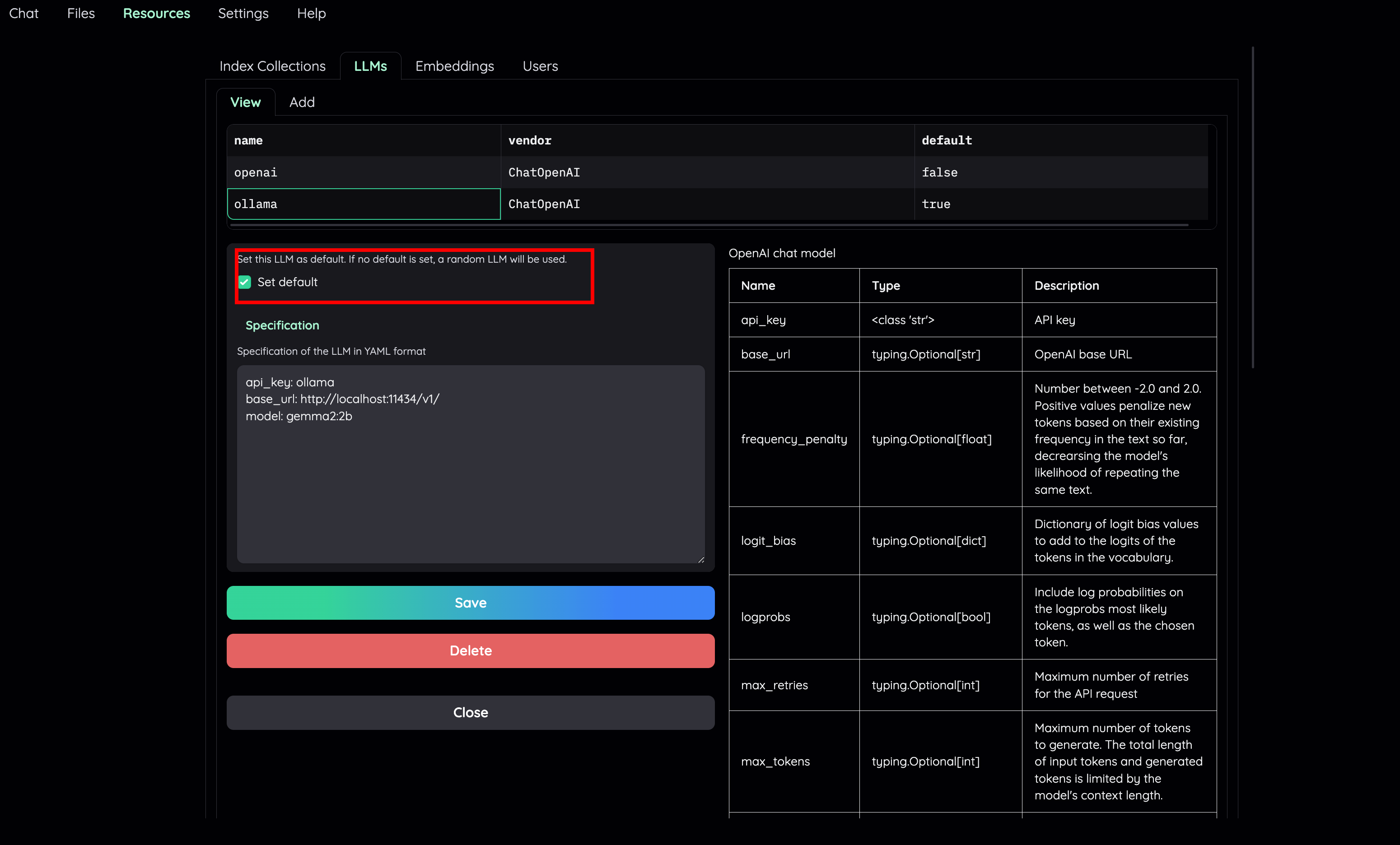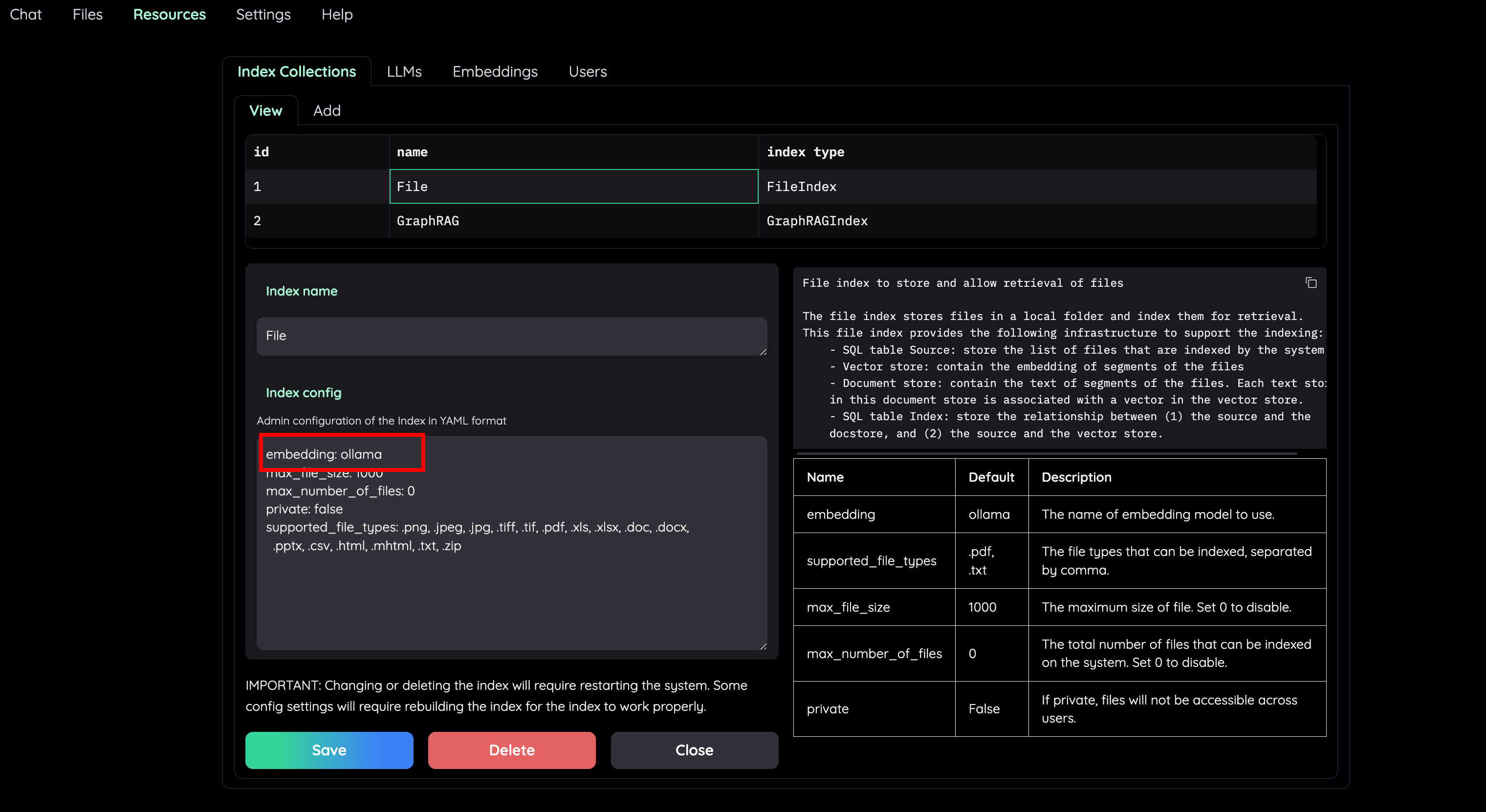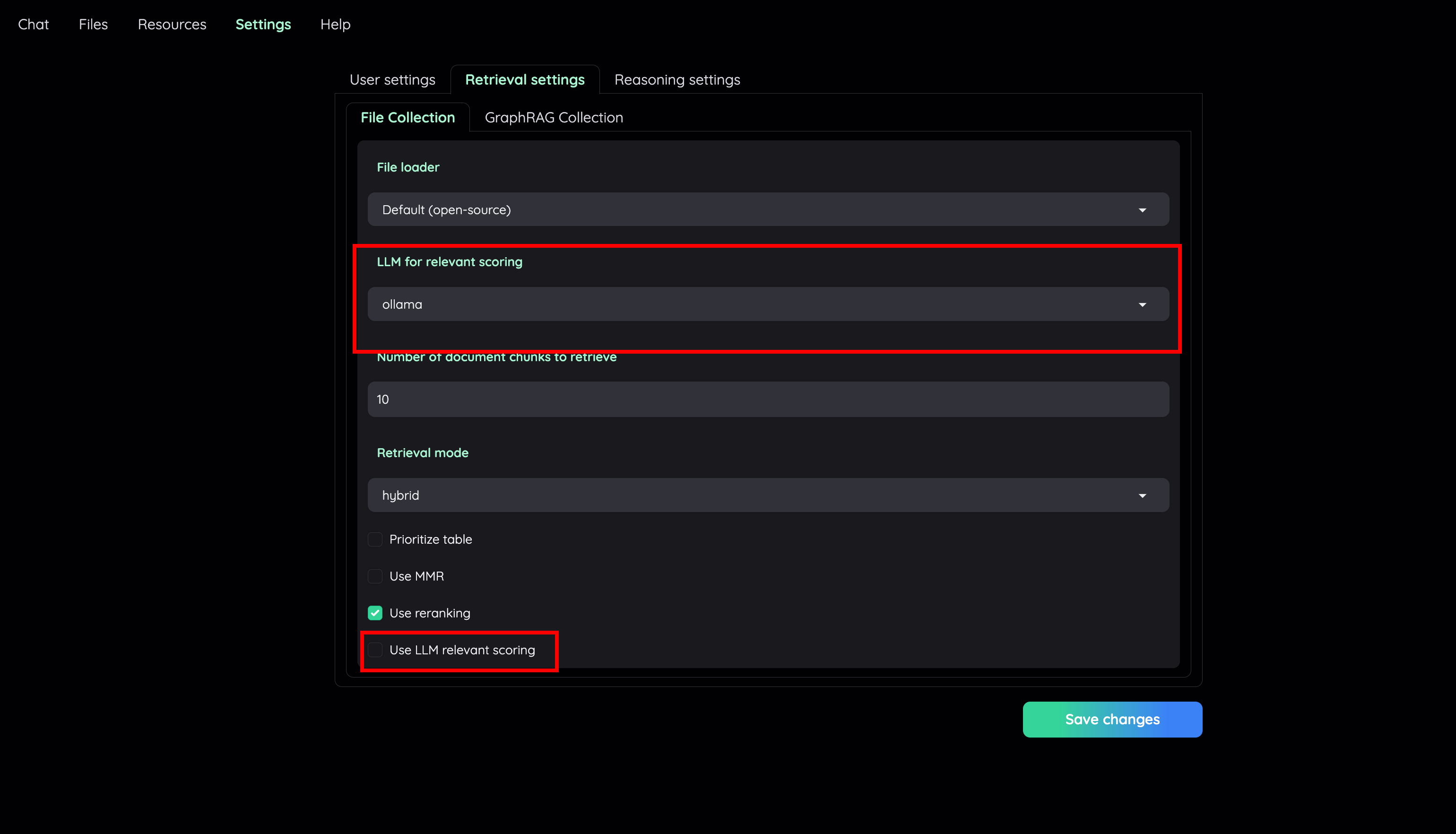Spaces:
Paused
Paused
File size: 2,989 Bytes
ad33df7 |
1 2 3 4 5 6 7 8 9 10 11 12 13 14 15 16 17 18 19 20 21 22 23 24 25 26 27 28 29 30 31 32 33 34 35 36 37 38 39 40 41 42 43 44 45 46 47 48 49 50 51 52 53 54 55 56 57 58 59 60 61 62 63 64 65 66 67 68 69 70 71 72 73 74 75 76 77 78 79 80 81 82 83 84 85 86 87 88 89 90 91 |
# Setup local LLMs & Embedding models
## Prepare local models
#### NOTE
In the case of using Docker image, please replace `http://localhost` with `http://host.docker.internal` to correctly communicate with service on the host machine. See [more detail](https://stackoverflow.com/questions/31324981/how-to-access-host-port-from-docker-container).
### Ollama OpenAI compatible server (recommended)
Install [ollama](https://github.com/ollama/ollama) and start the application.
Pull your model (e.g):
```
ollama pull llama3.1:8b
ollama pull nomic-embed-text
```
Setup LLM and Embedding model on Resources tab with type OpenAI. Set these model parameters to connect to Ollama:
```
api_key: ollama
base_url: http://localhost:11434/v1/
model: gemma2:2b (for llm) | nomic-embed-text (for embedding)
```

### oobabooga/text-generation-webui OpenAI compatible server
Install [oobabooga/text-generation-webui](https://github.com/oobabooga/text-generation-webui/).
Follow the setup guide to download your models (GGUF, HF).
Also take a look at [OpenAI compatible server](https://github.com/oobabooga/text-generation-webui/wiki/12-%E2%80%90-OpenAI-API) for detail instructions.
Here is a short version
```
# install sentence-transformer for embeddings creation
pip install sentence_transformers
# change to text-generation-webui src dir
python server.py --api
```
Use the `Models` tab to download new model and press Load.
Setup LLM and Embedding model on Resources tab with type OpenAI. Set these model parameters to connect to `text-generation-webui`:
```
api_key: dummy
base_url: http://localhost:5000/v1/
model: any
```
### llama-cpp-python server (LLM only)
See [llama-cpp-python OpenAI server](https://llama-cpp-python.readthedocs.io/en/latest/server/).
Download any GGUF model weight on HuggingFace or other source. Place it somewhere on your local machine.
Run
```
LOCAL_MODEL=<path/to/GGUF> python scripts/serve_local.py
```
Setup LLM model on Resources tab with type OpenAI. Set these model parameters to connect to `llama-cpp-python`:
```
api_key: dummy
base_url: http://localhost:8000/v1/
model: model_name
```
## Use local models for RAG
- Set default LLM and Embedding model to a local variant.

- Set embedding model for the File Collection to a local model (e.g: `ollama`)

- Go to Retrieval settings and choose LLM relevant scoring model as a local model (e.g: `ollama`). Or, you can choose to disable this feature if your machine cannot handle a lot of parallel LLM requests at the same time.

You are set! Start a new conversation to test your local RAG pipeline.
|